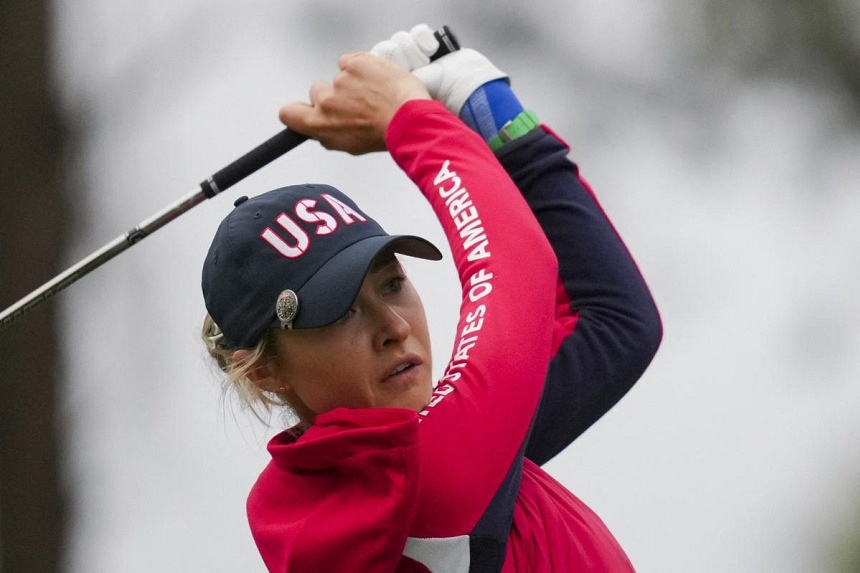The world of professional golf, known for its precision and poise, is grappling with a problem that threatens the flow and entertainment of the game: slow play. Two of the LPGA Tour’s biggest stars, Nelly Korda and Lexi Thompson, have recently spoken out about the issue, highlighting its growing impact on the tour.
While neither Korda nor Thompson are known for being outspoken critics, their comments underscore a sentiment shared by many players and fans alike. In a sport that thrives on rhythm and focus, the increasing delays during tournaments have sparked frustration and debate within the golfing community.
Slow Play: A Lingering Concern
Slow play is not a new problem in professional golf. For years, it has been a point of contention, with players often walking a fine line between strategic planning and excessive deliberation. The LPGA Tour, however, has faced heightened scrutiny recently, as rounds stretch beyond acceptable limits, affecting players’ focus and testing fans’ patience.
Speaking after a recent tournament, Korda, the reigning Olympic gold medalist and one of the most consistent players on the LPGA circuit, addressed the issue with her trademark composure. “It’s definitely something that needs to be addressed,” she said. “When rounds take too long, it disrupts the flow of the game—not just for us as players, but for the fans watching. It’s a challenge to stay mentally sharp when you’re waiting so much between shots.”
Thompson, one of the most recognizable figures in women’s golf, echoed these sentiments. “Nobody wants to rush their game,” she said, “but there’s a difference between being meticulous and being excessively slow. It’s not fair to other players or the spectators.”
Why Slow Play Persists
Experts point to several factors contributing to slow play on the LPGA Tour. These include players taking extra time to read greens, increased reliance on yardage books and technology, and the pressure to perform at an elite level. Additionally, the LPGA’s international nature means players often face language barriers and cultural differences in on-course communication, which can inadvertently slow down play.
While the LPGA has a pace-of-play policy, enforcement remains inconsistent. Penalties for slow play are rarely handed out, leading to frustration among players who feel the rules are not applied uniformly.
A Call for Change
Korda and Thompson are not calling for players to be “ruthless” on the course, but they agree that a more proactive approach is needed to tackle the problem. Both players advocate for stricter enforcement of the pace-of-play rules, coupled with increased education and awareness among players.
“It’s about finding the right balance,” Korda explained. “We want to maintain the integrity of the game and allow players the time they need to make their shots, but we also need to keep things moving.”
Thompson suggested implementing measures such as on-course shot clocks or harsher penalties for repeat offenders. “It’s not about punishing players but creating an environment where everyone respects the time of others,” she said.
Fans and Fellow Players React
The comments from Korda and Thompson have sparked widespread discussion in the golfing community. Many fans applauded their willingness to address the issue, while others argued that slow play is an inevitable part of professional golf.
Some players, however, pushed back against the criticism, citing the high stakes and complexity of modern golf as reasons for taking extra time. “It’s easy to criticize until you’re the one standing over a putt with everything on the line,” one LPGA player said anonymously.
Looking Ahead
As the LPGA Tour continues to grow in popularity, addressing slow play will be crucial to maintaining its appeal. Fans want to see the sport’s top talents, like Nelly Korda and Lexi Thompson, competing at their best—not waiting on the tee box or in the fairway.
The question now is whether the LPGA will take meaningful action to combat slow play or if the issue will continue to linger, overshadowing the incredible talent and dedication of its players.
For Korda and Thompson, the answer is clear: change is needed, and it’s needed soon. As two of the sport’s most influential figures, their voices may be the catalyst the LPGA needs to usher in a new era of faster, more dynamic play.

Leave a Reply